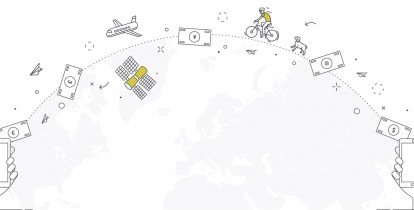A report by the Administration of Border Crossings, Population and Immigration Authority from January 2019 found that in December 2018 almost 115,000 foreign workers were present in Israel, 14% of them illegally.
Almost 50% of them work in the caregiving and nursing industry and 25% are employed in agriculture.
The main countries of origin are; Philippines, India, Moldova, China and Thailand.
Why is there a need for foreign workers?
The employment of non-Israeli workers contributes to the expansion of industries in which cheap labour is required. The effect of employing foreign workers on the prices of products and services in the relevant fields is direct, and for the consumer, means a cheaper price.
Instead of investing in technologies, or alternatively, paying Israeli workers a higher wage for all the social benefits implied by this, a foreign worker is cheaper.
Compared to other countries, the percentage of foreign workers in Israel is among the highest, almost double the norm in the Western world.
How does this situation affect Israel as a state of innovation and knowledge, the start-up nation? A report by the Israel Democracy Institute claims that the scope of the phenomenon preserves industries of cheap labour, low productivity, and makes certain businesses highly dependent, and sometimes even exclusively dependent on foreign labourers.
It is important to note that the law in the State of Israel requires that a foreign worker be granted the same conditions as an Israeli citizen; minimum wage, travel expenses, severance pay, and more.
Contrary to conventional belief, most foreign workers do not take jobs from Israeli citizens, since they are employed in jobs that have low demand from Israeli workers, and industries such as nursing, agriculture and construction are crying out for employees.
While the impact on the price for us, the consumers, it is generally positive; How does this affect society itself?
A report by the Israel Democracy Institute claims that the foreign workers are already a part of the Israeli Labor ecosystem, and not only that – but they have become a part of the social landscape.
The largest employment group, as noted, is foreign workers employed in the field of caregiving – precisely female foreign workers. The work permits are long-term, so their stay in Israel is long. During this time, they find social circles, join communities, often establish families – sometimes mixed families.
Clearly, this has long-term effects that require adjustments in the way of thinking at the political level regarding the fate and future of such families, not to mention the children of foreign workers who were born and raised in Israel.
The question many of us do not ask is why foreign workers choose to come to Israel.
In certain areas of employment, it is the State of Israel that encourages foreign workers by agreements with countries of origin. For example, there are many foreign workers from Turkey and China in the field of construction and agricultural workers from Thailand.
Many foreign workers come here to support their families in the countries of origin. In many cases, the average salaries in the countries of origin are much lower than the salaries they are entitled here.
Therefore, most foreign workers transfer most of their salaries to their families who remain in their homeland.
How do 115,000 foreign workers transfer their money to families in their countries of origin? Most foreign workers will choose to transfer their money quickly through financial services companies such as GMT or through Israel Post offices. GMT’s services offer foreign workers two main options;
Cash Pickup – Transfer of cash to the beneficiary using a secret reference number.
Credit Bank Account – Depositing foreign currency into a bank account worldwide.
Why use the services of non-bank financial companies?
Well, the answer to this is simple – availability, price and excellent professional service.
While the Israel Post has fewer branches, long queues, especially high service and conversion fees – GMT operates with 13 international partners, allowing money transfers to almost half a million locations worldwide, and not only that – GMT has 250 branches nationwide and very convenient hours of operation. All these ensure short queues and competitive prices.
Unlike banks that do not serve accountless customers and postal services that provide money transfer services as a marginal part of a wider range of services, cross border remittances are the main services that GMT specializes in. As a result, the company’s employees and agents succeed in providing professional service that is adapted and developed according to the customer’s requirements.

 WhatsApp
WhatsApp Call Center
Call Center










